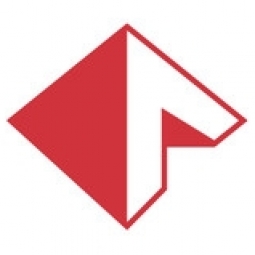Case Studies.
Add Case Study
Our Case Study database tracks 22,657 case studies in the global enterprise technology ecosystem.
Filters allow you to explore case studies quickly and efficiently.
Download Excel
Filters
-
(4)
- (4)
-
(2)
- (2)
- (5)
- (2)
- (1)
- (1)
- (1)
- View all 6 Industries
- (6)
- (6)
- (6)
- (5)
- (6)
- (4)
- (1)
- (6)
Selected Filters

|
Case Study: Lear Automotive Electronics and Electrical Products (Shanghai) Co., Ltd.
Lear Shanghai, a subsidiary of the global Lear Corporation, was looking to eliminate rework and shorten new product introduction (NPI) time to improve their overall manufacturing process. As a supplier of automotive electrical distribution systems, their customers’ expectations for product quality and traceability were a key priority. The manufacturing process is quite complex, and the company’s main products include central control boxes, tire pressure monitoring systems, remote keyless entry units, and door sensor systems. Decision makers at the management level must balance their customers’ needs for product quality, on-time delivery, and traceability while minimizing their own production costs and increasing throughput. In 2008, as a new facility, it was crucial that decision makers choose an MES software that could be quickly and easily deployed throughout the facility to minimize the time it took to run as a fully functioning operation.
|
|
|

|
Cirtronics Success Story
Cirtronics Corporation, a product manufacturer operating within multiple markets, was using MAX ERP and Aegis software as a Manufacturing Execution System (MES) to automate their manufacturing floor. However, they faced a challenge in streamlining the process of validating part numbers between Aegis and MAX—a process that could take most of a day when customers sent a new or revised bill of materials. The challenge was to create a seamless integration between MAX and Aegis so that information flowed quickly and smoothly between the two systems. If integration could be built, Cirtronics would be able to take full advantage of the best capabilities of each system.
|
|
|

|
Case Study: Quality Production Ltd.
Quality Production Ltd (QPL) had been using a paper-based manufacturing system which became unsatisfactory for a number of reasons. The system was not an integrated solution, with word processing, spreadsheet, database and drawing functions each obtained from separate, standard PC software products. Combining these into a usable documentation package was very difficult and labor intensive. Document version control problems also arose during use. Additionally, extracting timely quality data presented substantial difficulties. In reviewing and considering improvements for this process, QPL identified and prioritized a number of requirements: Increased speed and accuracy in BOM scrubbing and creating documentation packages, better efficiency in communicating ECO information to the shop floor, reduced machine programming times, extraction of real time data to drive QPL’s quality improvement initiative, and implementation of these improvements within a completely paperless environment.
|
|
|

|
Case Study: Surmotech
Late in 2010, a Surmotech customer with a highly complex, dense PCBA required complete product, materials, and process traceability. While it was possible to fulfill these requirements using the existing systems, it would have adversely impacted throughput. Surmotech began investigating an integrated solution. The challenge was to find a system to manage the setup of their machines, track the components and units, and finally compile data from each point on the manufacturing floor to meet the end customer requirements for traceability and historical genealogy. Surmotech explored several alternative systems but most of these lacked the depth and scope to integrate the multiple machines and data points of their process.
|
|
|

|
Improved Process Control and Data Visibility by Moving from a Home Grown System to a Scalable MES
Norautron Suzhou, a subsidiary of Norautron Group, specializes in the manufacturing of high-mix, low-volume industrial electronics. In 2012, the company realized that their home-grown MES system could no longer support the growing demand from customers. The challenges they faced included increasing customer requirements and market regulations for mission-critical products. Products that need to work in tough environmental conditions or demand extremely high reliability like the ones Norautron makes for maritime, defense, and medical industries require traceability down to a single connection on a single electronic component. Also, process control and material management, including RMA is a must. However, the precise and high-level traceability and strict process control and management can only be achieved by a professional MES system, where Norautron’s home-grown system fell short. Ever-increasing time and labor cost while using and maintaining the home-grown system is another issue that troubled management. In the past, Norautron input tremendous labor-hours to create the trace record manually for each part and product to fulfill the traceability requirement and assure product quality. With increasing national wages, Norautron Suzhou found the labor cost, as a proportion of the whole operation cost rose so sharply year after year that company profitability was soon likely to be adversely affected.
|
|
|

|
Case Study: Connor Solutions
Connor Solutions, one of the UK’s largest privately owned EMS providers, was facing increasing demands for compliance, control, and traceability in the Medical and Avionics sectors of electronics manufacturing. The company was relying on multiple systems to manage data integrity, which was becoming unsustainable due to the associated costs for increasingly complex operational management. The company decided to move towards a single holistic MES solution that would provide a single source of actionable live data, enabling them to achieve the next level of factory control, automation, visibility, and operational excellence.
|
|




